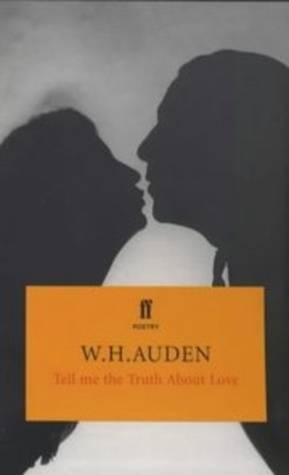

Tell Me the Truth about Love
by W.H. Auden
Had he been writing now, Auden might well have penned a poem entitled "Tell me the Truth About Publishing", for the publication of this special, short collection was directly inspired by the runaway success of the 1994 film Four Weddings and a Funeral in which one of Auden's poems was recited. Stretching from October 1932 to June 1948, the poems may have been more revelatory had they been arranged chronologically but commercial demands have placed "Funeral Blues", forevermore known as the poem in the movie, at the end, while "Lullaby", arguably a better poem, is tucked away inside. The period partly coincides with Auden going to America in January 1939 and "Calypso" pulses with the rhythm of a train taking him to his New York rendez-vous at Grand Central. "For there in the middle of that waiting-hall, / Should be standing the one that I love best of all." Many of the poems have the same jolly air and belting rhythm and indeed were written as cabaret songs. "At Last the Secret is Out" must have been tongue-in-cheek considering Auden's sexuality, yet the cover of this slim tome is resolutely heterosexual. But for dipping into Auden's work, this volume serves its purpose. "Funeral Blues" captures the sense of disbelief that the world has the audacity to continue after one has been bereaved. The Cole Porter tone of flippancy and humour--"Put crepe bows round the white necks of the public doves", makes the understated grief all the more poignant. He declares the emblems of romance redundant. "The stars are not wanted now; put out every one." He swings from the grandiose to the mundane and in doing so, sweeps the reader up in the aura of all-emcompassing love. "He was my North, my South, my East and West, / My working week and my Sunday rest." "Lullaby" retains immense mystery and power. Here he evokes the preciousness of one night spent with someone who isn't his. "Let the living creature lie, / Mortal, guilty, but to me, / The entirely beautiful." It leaves much unexplained, yet quite particular, so that it draws one back again and again: "Lay your sleeping head, my love, / Human on my faithless arm..." What an astonishing opener. --Cherry Smyth
Release Date:
October 3, 1999

